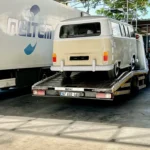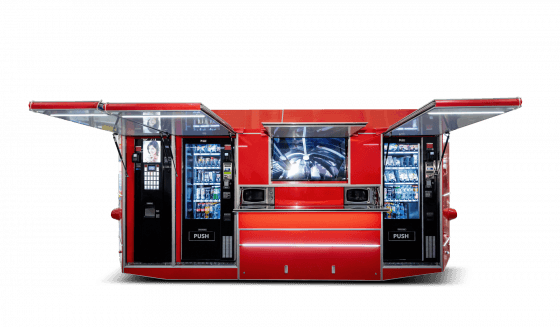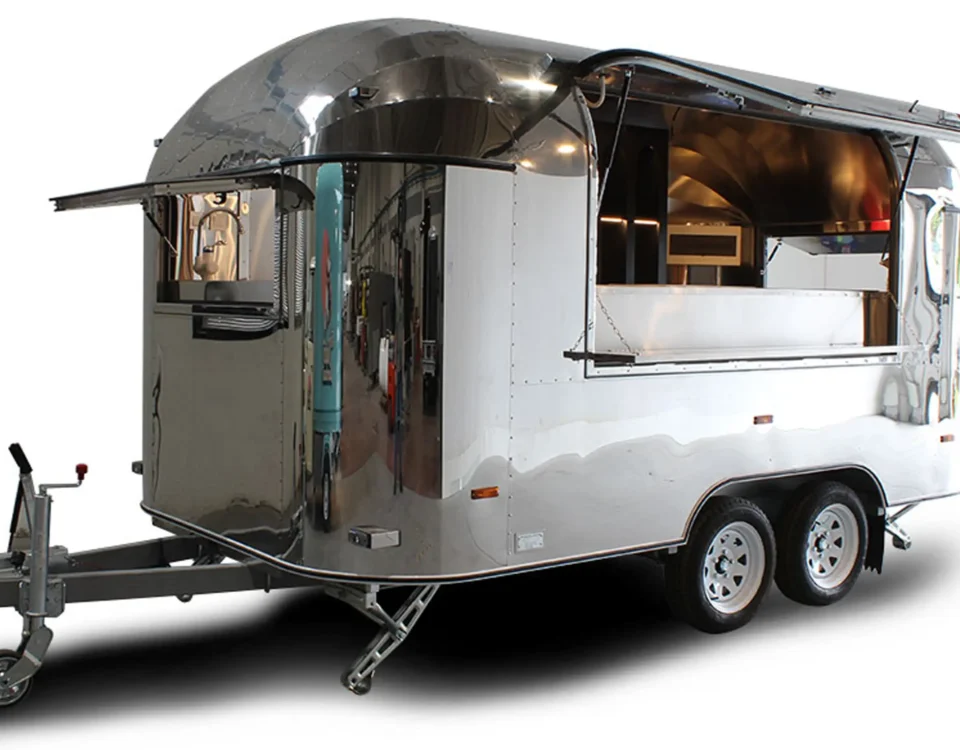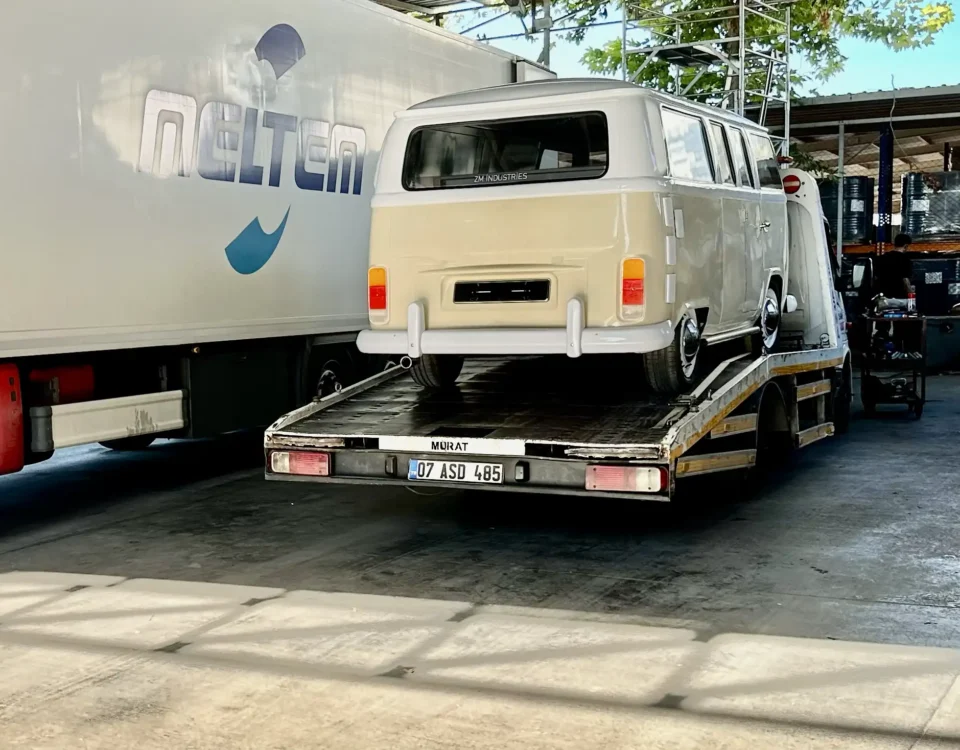
Food Truck in Europe Trends and Popular Destinations in 2025
March 18, 2024Most Popular Food Trucks in Europe Leading the Street Food Scene in 2025
Food trucks in Europe have gained significant popularity for offering a diverse range of affordable, high-quality street food. From London to Paris, these mobile kitchens serve everything from local specialties to international favorites, attracting both locals and tourists. The most popular food trucks in Europe combine mobility with creative menus, making them accessible and appealing across major cities.
These food trucks offer a quick, flavorful alternative to traditional dining without the high cost or wait times. Many focus on regional ingredients and recipes while others introduce global street food trends, contributing to a vibrant culinary scene on wheels. Their growing versatility and presence in food markets, festivals, and city streets make them an important part of Europe's food culture.
The appeal goes beyond just the food; food trucks provide visibility, flexibility, and a way for chefs and entrepreneurs to connect directly with their audience. This rise in popularity reflects a shift in how people experience food, favoring convenience without sacrificing taste or quality.
Leading Food Truck Destinations in Europe
Europe offers a variety of cities and regions where food trucks thrive, each with distinctive culinary styles and vibrant street food cultures. Popular urban areas and emerging hotspots provide diverse flavors, while seasonal events attract large crowds eager to sample innovative dishes.
Top Cities Known for Food Trucks
London stands out with its famous Eat St at King's Cross, hosting a wide range of food trucks offering everything from gourmet burgers to ethnic specialties. Paris also ranks highly, where food trucks blend traditional French fare with global influences, especially around major public spaces.
Berlin’s street food market scene is noteworthy, with trucks serving up popular items like vegan wraps and Asian fusion dishes. Amsterdam captures attention through its canal-side markets and food trucks featuring Dutch and international foods. Geneva rounds out the list with a focus on high-quality ingredients and creative menus.
Emerging Food Truck Hotspots
Cities such as Lisbon and Barcelona have seen rapid growth in food truck presence recently. Lisbon combines ocean-fresh seafood with street food tradition, offering innovative takes on local flavors.
Barcelona’s food trucks often cater to both locals and tourists with Mediterranean-inspired menus, emphasizing fresh, seasonal produce. In Eastern Europe, cities like Krakow and Budapest are emerging markets, where food trucks introduce regional flavors alongside established European dishes.
Seasonal Food Truck Events
Food truck festivals are increasingly popular across Europe, drawing large crowds during warmer months. Events like the London Street Food Festival and Berlin’s Bite Club offer a concentrated variety of vendors in one place.
In Paris, Rue des Rosiers hosts seasonal street food markets focusing on Mediterranean and Middle Eastern cuisine. Amsterdam and Geneva also hold summer events that highlight sustainable and locally sourced ingredients alongside street food trends. These events provide opportunities to sample diverse menus in festive atmospheres.
Signature Cuisines of Europe’s Most Popular Food Trucks
Europe’s food trucks offer a wide range of culinary styles, from refined dishes made with high-quality ingredients to deeply rooted regional recipes. Some serve inventive combination plates that blend multiple international influences, reflecting the continent’s diverse food culture.
Gourmet Street Food Offerings
Many European food trucks now focus on gourmet street food, emphasizing fresh, premium ingredients and creative presentation. These trucks often elevate traditional fast foods like burgers, fries, and sandwiches by adding artisanal cheeses, rare herbs, or house-made sauces.
In cities like London and Paris, chefs behind the food trucks promote seasonal menus and handcrafted items. This approach appeals to food enthusiasts seeking quality and new taste experiences without visiting a formal restaurant. Gourmet food trucks compete by balancing quick service with culinary sophistication, making them popular in busy urban areas.
Traditional and Regional Specialties
Certain food trucks highlight classic local dishes that reflect their geographical origins. For example, in Amsterdam, food trucks frequently serve kibbeling—battered and fried cod pieces—a well-known Dutch street food. In Greece, gyros stands selling spiced meat in pita bread with tzatziki are widespread and beloved.
These trucks preserve regional identity in their menus, often using traditional cooking methods. Tourists and locals alike appreciate the opportunity to taste authentic cuisine in an informal setting. Traditional specialties help maintain culinary heritage while reaching a broad, diverse audience.
Fusion and International Flavors
Food trucks across Europe increasingly combine elements from different culinary traditions, creating unique fusion dishes. London is known for mixing South Asian spices with European ingredients, while Parisian trucks might blend French techniques with Middle Eastern flavors like falafel and shawarma.
This fusion trend reflects Europe’s multicultural urban populations and their evolving palates. The result is dynamic menus that frequently introduce new flavors and combinations. Fusion food trucks attract customers looking for innovative and diverse options beyond conventional fare.
Notable Food Trucks and Their Success Stories
Several European food trucks have earned recognition by winning prestigious awards. Others stand out due to their founders' culinary expertise or by pioneering unique food concepts that attract diverse customers. These factors contribute significantly to each truck’s lasting impact in the market.
Award-Winning European Food Trucks
Vegan Food Lab in Berlin has gained multiple awards for excellence in plant-based cuisine. Their focus on seasonal, locally sourced ingredients helped them win the German Street Food Award in 2023.
Le Camion qui Fume, based in Paris, was one of the first food trucks in France and received acclaim for its American-style burgers. They won the Best Food Truck at the Paris Culinary Festival in 2019.
In London, Bleecker Burger earned recognition for its traditional New York-style burgers and consistent quality. It was awarded Best European Food Truck in 2022 by Street Food Europe.
Influential Founders and Chefs
The founder of The Rolling Stove in Amsterdam, chef Karin Bos, came from a fine dining background. She successfully translated her culinary skills to the street food scene, emphasizing authentic Dutch flavors.
Antonio Garcia launched Tapas on Wheels in Barcelona after years in Michelin-starred kitchens. His reputation and innovation brought Spanish tapas to a wider audience across food festivals.
Paris’ Le Food Market was started by entrepreneur Jean-Luc Martin, combining his business acumen with a passion for French comfort food, leading to a strong citywide following and collaborations with local producers.
Innovative Food Truck Concepts
Gourmet Cold Brew, a mobile coffee and cocktail bar in Milan, revolutionized typical food truck offerings by blending beverages with street food culture. Their unique concept appeals to both daytime and nightlife crowds.
In Copenhagen, The Nordic Wagon focuses on hyper-local, seasonal ingredients like wild berries and smoked fish, creating dishes rooted in Scandinavian tradition.
The Italian truck Pizza al Taglio uses a battery-powered oven for authentic Roman-style pizza sold by weight. This eco-friendly innovation allows them to operate in areas with strict emission rules.
Cultural Impact of Food Trucks in Europe
Food trucks have altered how many Europeans experience urban food culture and the diversity of available cuisines. They bring new energy to city streets and strengthen cultural exchange by showcasing a broad range of culinary traditions.
Changing Urban Food Scenes
Food trucks have revitalized several European cities by transforming public spaces into vibrant food destinations. They often operate at festivals, markets, and on busy streets, injecting variety and spontaneity into the urban food environment.
This mobility allows them to reach diverse audiences and respond quickly to local demands. By offering affordable, high-quality options in casual settings, food trucks complement traditional restaurants and expand dining choices. Their presence also fosters community interaction and supports small entrepreneurs.
Promoting Culinary Diversity
Food trucks in Europe have become platforms for chefs to introduce foods from a wide array of cultures. They enable entrepreneurs from different ethnic backgrounds to present authentic dishes that might otherwise be underrepresented.
This cultural exchange encourages culinary experimentation and fusion, broadening the tastes available to the public. It also supports inclusion within the food industry by lowering barriers for new entrants. Through these means, food trucks help cultivate an open and diverse culinary landscape across European cities.
Trends Shaping the European Food Truck Scene
The European food truck industry is adapting to new demands with a focus on responsible operations and advanced connectivity. These factors are influencing how businesses operate and attract customers daily.
Sustainability and Eco-Friendly Practices
European food trucks increasingly prioritize sustainability in both sourcing and operations. Many vendors opt for local, seasonal ingredients to reduce their carbon footprint and support regional farmers. This approach helps meet consumer demand for environmentally conscious dining options.
Waste reduction is another key focus. Food trucks use biodegradable packaging and implement strict recycling policies to minimize environmental impact. Energy-efficient equipment, such as electric generators and LED lighting, is becoming standard, further lowering emissions.
Sustainability has also influenced menu design, encouraging more plant-based and vegan options. These trends reflect growing public awareness about climate change and ethical eating within European urban centers.
Technology and Social Media Influence
Technology drives efficiency and customer engagement in Europe’s food truck market. Many trucks use mobile apps and online ordering systems to optimize service speed and reduce wait times. GPS tracking helps customers locate their favorite trucks in real-time.
Social media platforms are crucial marketing tools. Food trucks often post daily updates on location, menu changes, and special events, frequently using Instagram and TikTok to reach younger audiences. Visual content showcasing food preparation and customer experiences drives brand loyalty.
Data analytics aid business decisions by monitoring sales and customer preferences. This information helps tailor menus and promotional offers, ensuring competitiveness in a busy market.




